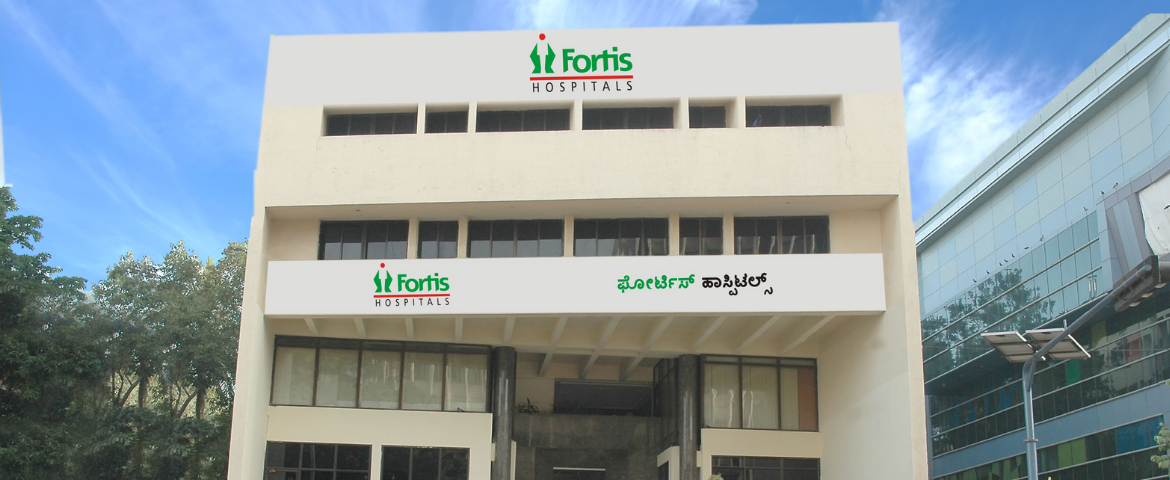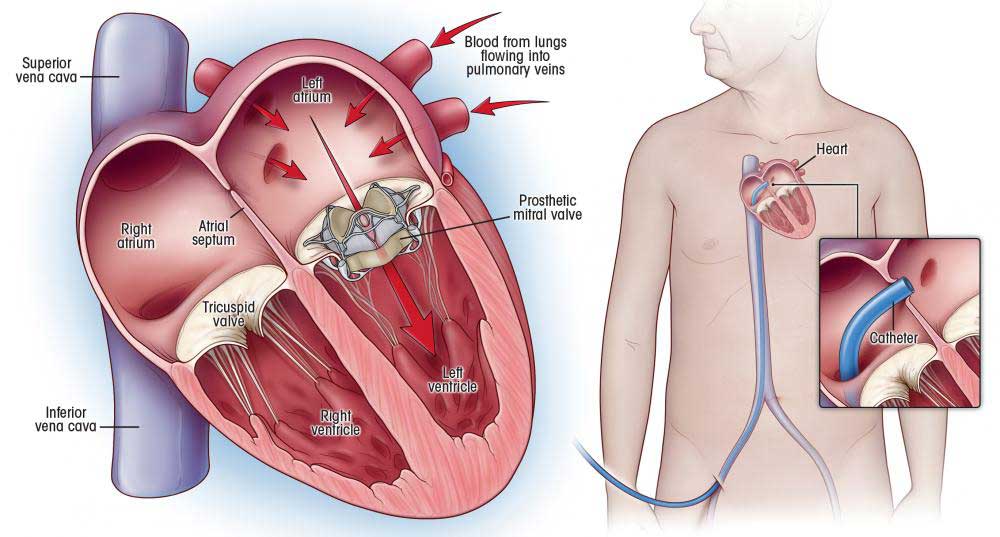Double Valve Replacement cost in India
The cost of Double Valve Replacement in India
ranges from USD 8500 to USD 15000
Double Valve Replacement:
General anaesthetic is used during heart valve repair surgery, whether it is standard or minimally invasive.
- A deep neck-to-navel incision is needed in traditional surgery. A minimally invasive procedure allows for a shorter incision, which reduces the risk of infection.
- The heart must be briefly stopped beating in order to effectively remove the defective valve and replace it with a surgeon.
- During surgery, the patient is connected to a blood-circulating bypass pump, which keeps the blood flowing through the body and the lungs.
- The surgeon rips the valves out and removes them from the aorta.
- Most coronary substitutes spend five to seven days in the hospital. Because the surgery is minimally invasive, the patient can be discharged sooner.
- Follow-ups are crucial in assisting the practitioner in determining whether or not they are able to continue working on a daily basis.
Double Valve Replacement:
General anaesthetic is used during heart valve repair surgery, whether it is standard or minimally invasive.
- A deep neck-to-navel incision is needed in traditional surgery. A minimally invasive procedure allows for a shorter incision, which reduces the risk of infection.
- The heart must be briefly stopped beating in order to effectively remove the defective valve and replace it with a surgeon.
- During surgery, the patient is connected to a blood-circulating bypass pump, which keeps the blood flowing through the body and the lungs.
- The surgeon rips the valves out and removes them from the aorta.
- Most coronary substitutes spend five to seven days in the hospital. Because the surgery is minimally invasive, the patient can be discharged sooner.
-Follow-ups are crucial in assisting the practitioner in determining whether or not they are able to continue working on a daily basis.
Disease Overview:
Heart valve disease
In heart valve disease, one or more of the valves in your heart doesn't work properly. Your heart has four valves that keep blood flowing in the correct direction. In some cases, one or more of the valves don't open or close properly. This can cause the blood flow through your heart to your body to be disrupted.
Disease Signs and Symptoms:
Some people with heart valve disease might not have symptoms for many years. When signs and symptoms occur, they might include:
- Whooshing sound (heart murmur) when a doctor is listening to the heart with a stethoscope
- Chest pain
- Abdominal swelling (more common with advanced tricuspid regurgitation)
- Fatigue
- Shortness of breath, particularly when active or lying down
- Swelling of your ankles and feet
- Dizziness
- Fainting
- Irregular heartbeat
Disease Causes:
The four heart valves, which keep blood flowing in the right direction, are the mitral, tricuspid, pulmonary and aortic valves. Each valve has flaps (leaflets) that open and close once per heartbeat. If one or more of the valves fail to open or close properly, the blood flow through your heart to your body is disrupted.
Heart valve disease may be present at birth (congenital). It can also occur in adults due to many causes and conditions, such as infections and other heart conditions.
Heart valve problems include:
Regurgitation. The valve flaps don't close properly, causing blood to leak backward in your heart. This commonly occurs due to valve flaps bulging back, a condition called prolapse.
Stenosis. The valve flaps become thick or stiff and possibly fuse together. This results in a narrowed valve opening and reduced blood flow through the valve.
Atresia. The valve isn't formed, and a solid sheet of tissue blocks the blood flow between the heart chambers.
Disease Diagnosis:
Your doctor will conduct a physical examination and listen for a heart murmur, a possible sign of a heart valve condition. You might have several tests to diagnose your condition.
Tests might include:
- Echocardiography: Sound waves directed at your heart from a wandlike device (transducer) produce video images of your heart in motion. This test assesses the structure of your heart, the heart valves and the blood flow through your heart.
- Transesophageal echocardiogram: a small transducer attached to the end of a tube is inserted down the tube leading from your mouth to your stomach (esophagus). This test helps your doctor get a closer look at the heart valves than is possible with a regular echocardiogram.
- Electrocardiogram (ECG): Wires (electrodes) attached to pads on your skin measure electrical impulses from your heart. An ECG can detect enlarged chambers of your heart, heart disease and abnormal heart rhythms.
- Chest X-ray: A chest X-ray can help your doctor determine whether the heart is enlarged, which can indicate certain types of heart valve disease. A chest X-ray can also help doctors determine the condition of your lungs.
- Cardiac MRI: A cardiac MRI uses magnetic fields and radio waves to create detailed images of your heart. It can determine the severity of your condition and assess the size and function of your lower heart chambers.
- Exercise tests or stress tests: Different exercise tests help measure your activity tolerance and monitor your heart's response to physical exertion. If you can't exercise, you might be given medications that mimic the effect of exercise on your heart.
Disease Treatment:
Heart valve disease treatment depends on your symptoms, the severity of the condition, and whether your condition is worsening.
A doctor trained in heart disease (cardiologist) will provide your care. Treatment might include monitoring your condition with regular follow-up visits. You might be asked to:
- Make healthy lifestyle changes
- Take medications to treat symptoms
- Take blood thinners to reduce the risk of blood clots if you have a certain irregular heart rhythm called atrial fibrillation
Surgery or other procedures:
You might eventually need heart valve surgery to repair or replace the diseased heart valve even if you don't have symptoms. If you need surgery for another heart condition, your doctor might repair or replace the diseased valve at the same time.
Heart valve surgery is usually performed through a cut (incision) in the chest. Doctors sometimes do minimally invasive heart surgery, which involves smaller incisions than those made for open-heart surgery. In some medical centers, doctors perform robot-assisted heart surgery, a type of minimally invasive heart surgery in which surgeons use robotic instruments to conduct the procedure.
Surgery options include valve repair or replacement.
Heart Valve replacement: If the valve can't be repaired, surgeons might remove the damaged valve and replace it with a mechanical valve or a valve made from cow, pig or human heart tissue (biological or tissue valve).
CABG: A coronary artery bypass graft involves taking a blood vessel from another part of the body (usually the chest, leg or arm) and attaching it to the coronary artery above and below the narrowed area or blockage.
This new blood vessel is known as a graft. The number of grafts needed will depend on how severe your coronary heart disease is and how many of the coronary blood vessels are narrowed.
Country wise cost comparison for Double Valve Replacement:
| Country | Cost |
|---|---|
| India | $8460 |
| Turkey | $15594 |
| Thailand | $19931 |
| United Arab Emirates | $20005 |
| Singapore | $96195 |
Treatment and Cost
21
Total Days
In Country
- 7 Day in Hospital
- 2 No. Travelers
- 14 Days Outside Hospital
Treatment cost starts from
$9400
Popular Hospital & Clinic
Featured Hospital
0 Hospitals
Related Packages
More Related Information
Some of the top rated doctors are:
- Italy
Some of the top rated hospitals are:
- United Arab Emirates
- Burjeel Hospital, Abu Dhabi
- New Hope IVF Gynaecology & Fertility Hospital, Sharjah
- Iranian Hospital, Dubai
- Kings College Hospital Dubai
- Zulekha Hospital Sharjah
- Burjeel Hospital for Advanced Surgery Dubai
- Burjeel Medical City, Abu Dhabi
- NMC Royal Hospital, Khalifa City, Abu Dhabi
- NMC Royal Hospital Sharjah
- AL NOOR HOSPITAL, Abu Dhabi
- Al Zahra hospital, Dubai
- NMC Specialty Hospital, Al Nahda, Dubai
- Saudi Arabia
- Italy




